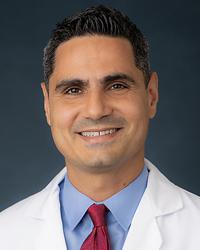Research Lab Results
-
Qian-Li Xue Lab
The primary area of statistical expertise in the Qian-Li Xue Lab is the development and application of statistical methods for: (1) handling the truncation of information on underlying or unobservable outcomes (e.g., disability) as a result of screening, (2) missing data, including outcome (e.g., frailty) censoring by a competing risk (e.g., mortality) and (3) trajectory analysis of multivariate outcomes. Other areas of methodologic research interests include multivariate, latent variable models. In Women's Health and Aging Studies, we have closely collaborated with scientific investigators on the design and analysis of longitudinal data relating biomarkers of inflammation, hormonal dysregulation and micronutrient deficiencies to the development and progression of frailty and disability, as well as characterizing the natural history of change in cognitive and physical function over time.
-
Mathioudakis Lab
The Mathioudakis lab is focused on developing and evaluating clinical decision support systems, technology, and mHealth for diabetes prevention and management. Our lab leverages large electronic medical record databases and uses machine learning algorithms and artificial intelligence to identify patterns in clinical care associated with optimal clinical outcomes. We are interested in understanding the role that advanced diabetes technologies can play in improving health outcomes for patients with diabetes. Our lab has published extensively on outcomes related to diabetes prevention and diabetes management and outcomes. Based on data from our long-term (over 10 year) clinic-based prospective cohort study from the Johns Hopkins Multidisciplinary Diabetic Foot and Wound Clinic, we have published extensively on clinical predictors and outcomes of patients with diabetic foot ulcers, focusing specifically on the role that glycemic control plays in patients with this complication. Healthcare disparities exist throughout medicine, but are particularly prominent in diabetes; our lab has evaluated healthcare inequities in diabetes outcomes and is developing and evaluating strategies to overcome them. In addition to identify optimal management approach to diabetes and its complications, our lab is interested in development and evaluation of innovative technology approaches to diabetes prevention. -
Neuro-Oncology Surgical Outcomes Laboratory
Directed by Debraj “Raj” Mukherjee, MD, MPH, the laboratory focuses on improving access to care, reducing disparities, maximizing surgical outcomes, and optimizing quality of life for patients with brain and skull base tumors.
The laboratory achieves these aims by creating and analyzing institutional and national databases, developing and validating novel patient-centered quality of life instruments, leveraging machine learning and artificial intelligence platforms to risk-stratify vulnerable patient populations, and designing novel surgical trials to push the boundaries of neurosurgical innovation.
Our research also investigates novel approaches to improve neurosurgical medical education including studying the utility of video-based surgical coaching and the design of new operative instrumentation.
-
Hanan Aboumatar Lab
Research in the Hanan Aboumatar Lab focuses on advancing patient-centered outcomes through improved patient and family involvement. We also focus on multilevel methods to increase the patient-centered focus of care delivery. Recent research examined the impact of a quality-improvement intervention on patient involvement in primary care and treatment with respect and dignity in intensive care.
-
HIV Quality of Care
Dr. Stephen Berry’s research focuses on healthcare quality, safety and costs among persons living with HIV, both in the outpatient and inpatient settings. He conducts observational and interventional studies of sexually transmitted infection screening in HIV clinics, with a focus on improving performance to meet national guidelines. He leads observational studies of rates and reasons for hospitalizations and of 30-day readmission rates among HIV patients. He is conducting a randomized study of a nurse- and pharmacist-based team to reduce inpatient HIV medication errors and increase engagement in outpatient care among persons living with HIV who are hospitalized at The Johns Hopkins Hospital.
-
Henry Michtalik Lab
Researchers in the Henry Michtalik Lab are interested in patient safety—particularly as it relates to patient census statistics and acute to primary care transitions—and quality improvement and systems management.
-
Michelle Eakin Lab
The Michelle Eakin Lab conducts research on behavioral science and adherence and asthma outcomes in inner-city children. Our studies into behavioral science have included exploring the impact of medication adherence on lung health outcomes in patients with cystic fibrosis, disparities in anti-hypertensive medication adherence in adolescents and other key topics. We also investigate methods for improving asthma care and treatment as well as health disparities among various ethnicities, particularly in pediatric patients.
-
Meredith McCormack Lab
Research in the Meredith McCormack Lab deals primarily with pulmonary diseases, such as asthma and chronic obstructive pulmonary disease (COPD), and the role of environmental exposures in lung diseases. We have researched the factors that contribute to inner-city asthma, with a focus on how particulate matter air pollution impacts pulmonary function. We are also part of the LIBERATE clinical study, which is focused on patients who experience difficulty breathing and have been diagnosed with severe emphysema. We also have a longstanding interest in the effects of race/ethnicity, poverty and urbanization on nutrition and food allergies.
-
Michael Klag Lab
The Michael Klag Lab focuses on the epidemiology and prevention of kidney disease, cardiovascular disease and hypertension. Our research determined that the U.S. was experiencing an epidemic of end-stage kidney disease, pinpointed the incidence of kidney disease and published scholarship on risk factors for kidney disease such as race, diabetes and socioeconomic status. Our Precursors Study has shown that serum cholesterol measured at age 22 years is a predictor for midlife cardiovascular disease, a finding that has influenced policy about cholesterol screening in young adults. We also research health behaviors that lead to hypertension and study how differences in these behaviors affect urban and non-urban populations.
-
Johns Hopkins Medicine Technology Innovation Center (TIC)
The TIC works with interdisciplinary teams to bring digital health products to life in clinical settings at Johns Hopkins Health System. TIC offers design, development, business, and project management partnership to solve clinical problems that span the range of medical specialties and practice settings. Through community-based events and programs, the TIC also works to train the next wave of digital health innovators and builds start-up teams with the tools to launch commercial products improving patient care at Johns Hopkins and across the industry.


